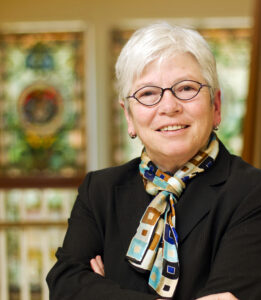House Committee’s Proposed Budget Funds Kirwan, Reduces Private School Scholarships
It wasn’t the easy budgeting year that lawmakers thought they might have early in the legislative session, but House appropriators approved a $46 billion budget on Friday that nearly-fully funded the first batch of recommendations from the Kirwan Commission, scaled back a private school scholarship program, and identified a half-a-billion dollars for school construction.
And even after lawmakers faced a last-minute writedown of $268.5 million in anticipated revenue, the budget that will move to the House floor on Monday maintains a fund balance of about $118 million, analysts said.
“This is the best budget I’ve ever seen for the kids of Maryland,” said House Appropriations Chair Del. Maggie L. McIntosh (D-Baltimore City). “Ever. And I mean that.”
The committee’s budget proposal includes just over $320 million to fund Kirwan Commission recommendations, a smidge under the $325 requested by the panel earlier this year.
Funding for Kirwan includes:
- $113.6 million to provide additional funding for students with disabilities;
- $75 million to increase teacher salaries;
- $54.6 million for new Concentration of Poverty Grants to schools in which 80 percent or more students qualify for free or reduced-price lunches; and
- $29.3 million to expand full-day pre-kindergarten for 4-year-olds, among other increases.
The committee found savings by eliminating vacant positions in state government, decreasing the budgets for underperforming offices and programs, setting aside a lesser amount in a revenue volatility fund, repurposing funds that were part of an incentive package for Amazon, and trimming the budgets for higher education in the state by about $4 million, among other cuts.

House Appropriations Chair Maggie L. McIntosh
The committee made dozens of changes to the state budget during a nearly three-hour decision meeting on Friday. After the House of Delegates moves its budget proposal, the Senate will take up a spending plan in that chamber. Lawmakers must pass a final budget by April 1.
Here’s a quick look at some of the House Appropriations Committee’s other actions:
BOOST restrained
In one of the committee’s longer debates, the panel voted 16-9 to restrict funding for the Broadening Options and Opportunities for Students Today (BOOST) Program, which provides funding for low-income students to attend private schools.
A majority of committee members voted to restrict future scholarships, which can now only be awarded to children who have received a scholarship in the past, or their siblings who wish to attend the same school.
Del. Michael W. McKay (R-Allegany and Washington) said he agreed with past moves by the Legislature to limit BOOST funding to schools that don’t discriminate in admissions. But he said eliminating BOOST was “discrimination in itself” and that lawmakers need to have more tolerance for funding religious schools.
Del. Kirill Reznik (D-Montgomery) disagreed. “Every child in this state has the opportunity to go to public school, that is what our tax dollars pay for. It is not the obligation of the state to provide a religious education to any child,” he said.
Two Democrats – Del. Shelly L. Hettleman (D-Baltimore County) and Del. Geraldine Valentino-Smith (D-Prince George’s) – joined the committee’s Republicans to oppose the program’s cut. Valentino-Smith said she supported the scholarship program not to prop up religious institutions, but because some public schools in her area are simply failing to provide a high-quality education.
Gov. Lawrence J. Hogan Jr. (R) had sought to more than double the program’s funding in 2020 to $10 million. The committee appropriated $5.5 million.
Beltway bump
The committee voted to restrict $300,000 in the Maryland Department of Transportation’s administrative office until the department withdraws a pre-solicitation report for the I-270/Capital Beltway widening project and finishes a final Environmental Impact Statement. The amendment could slow progress on the project, or MDOT could continue operating without the restricted funds.
TEDCO tamed
The committee transferred $16.5 million from the budget of the Maryland Technology Development Corporation, or TEDCO, after a state audit called the organization’s investment practices into question. The funds will be directed instead to the Baltimore City Police Department to comply with the federal consent decree ($7.7 million), the Maryland State Police to establish a rape kit testing fund ($4 million), the Baltimore Symphony Orchestra ($1 million), and the Prince George’s County and Baltimore City state’s attorney’s offices ($250,000 each), among other programs.
Worker raises
The committee also set aside $46 million to give additional compensation enhancements to state employees who do not belong to a union that reached a collective bargaining agreement with the Hogan administration. That provision would apply to workers who don’t belong to unions, as well as to members of the state’s largest employee union, AFSCME Maryland Council 3, which did not reach an agreement in the fall. The allotment is contingent upon revenue and would be in addition to the 3 percent salary increase Hogan included in his proposed budget, analysts said.
Lottery proceeds
An amendment would prohibit a $16 million increase in casinos’ share of gaming proceeds, a move that was recommended by the Maryland State Lottery Commission in December. The amendment authorizes the governor to shift that revenue to special education expenses that are part of the Kirwan Commission recommendations.
Supplemental cuts
The committee rejected a $450,000 allocation to the Judge Alexander Williams, Jr. Center for Education, Justice and Ethics, whose namesake was appointed by the governor to serve on his redistricting commission and other panels. The item was included in a supplemental budget that Hogan proposed earlier this week. The commission also cut a $446,000 allocation for State Center litigation, a chunk of which had been added in the supplemental budget.




 Creative Commons Attribution
Creative Commons Attribution